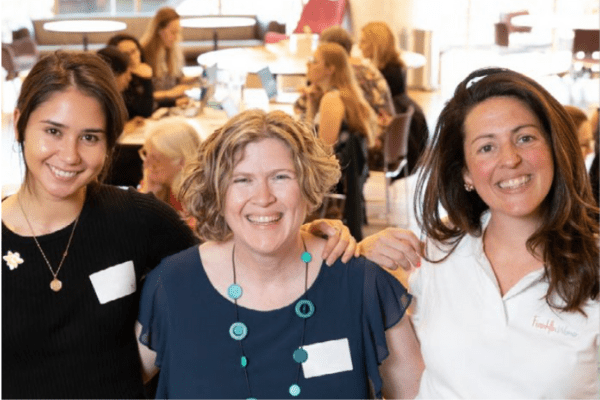The pandemic has affected all Australians this year, across all industries. But one of the hardest hit may have been the STEM industries, where work to improve gender imbalance has been further hindered.
Last week, the Australian social enterprise Franklin Women released their Five Year Impact Report which revealed that even though female academics and researchers make up 43 percent of the jobs in the science sector, only one-fifth of them have senior positions. The majority of these women hold junior, temporary or casual positions, thus placing their careers at greatest risk during the precarious crisis we’ve seen throughout the COVID-19 pandemic.
It wasn’t all doom and gloom though. The report also chartered the achievements the organisation has made for women in science and health since its inception in 2014 and how it plans to continue to advocate for progress for gender equality.
The organisation is also encouraging the government and other groups in the health and science industries to focus their resources on initiatives whose goals are to support women and other marginalised people working in scientific research to stay.
Franklin Women was established six years ago by Dr Melina Georgousakis and is concerned that the progress made on improving opportunities for women in science careers will be compromised due to the effects of the global pandemic.
In the report, Dr Georgousakis remarked that this year, more than ever, there is real strength in adopting a unique entrepreneurial spirit. Her organisation holds activities which provide support and training that women would otherwise not have access to while actively complementing other valuable gender equality initiatives that have emerged.
“It is hard enough being a scientist right now given the impact of COVID-19 on research funding bodies, philanthropic groups and the university sector,” Dr Georgousakis said in the report. “However we are already seeing that those hit the hardest are women because of the types of roles they typically hold.”
“The pandemic has put the importance of science and scientific research front and centre, yet we are at risk of losing a large proportion of our scientific workforce if we take our foot off the gas when it comes to gender equity and wider diversity and inclusion programs,” she continued.
Last year, Dr Georgousakis was profiled on Women’s Agenda, where she revealed that she’d been working the topic of Research Impact.
“In science sector there is a big push to encourage researchers to better identify and share how their work will have positive impact on society,” she said. “However this is a skill we are not trained for and still developing. I hope this event will really help the Franklin Women’s community with this so they can incorporate in their careers.”
Franklin Women also hosted an event last week – 2020 Impact Report Launch Night, which was moderated by award-winning journalist, author and presenter Catherine Fox. The event aimed to highlight the impact of the organisation’s work for women working in science and to survey what’s to come in the future.
Dr Georgousakis said she “couldn’t be more proud to see that our work has made a tangible impact on the careers of women working across the health and medical research sector…especially in recent months as we repurposed some of our initiatives to specifically address challenges faced because of lock-downs.”
The event included speakers such as Health & Medical researcher Dr Amy Vassallo, Research Fellow Dr Belinda Di Bartolo and intergenerational leadership specialist Nicole Hatherly.
Nanette Herlihen, the HR Manager at the Centenary Institute at the University of Sydney, said the organisation’s academic partnership with the Franklin Women has not only been valuable for their staff and students. They also benefit from initiatives that aim to support an inclusive culture within the sector.
“The flow of talented women through our Institute is remarkable and we want to be able to provide them with the greatest possible opportunity for success,” Herlihen said in a statement. “We benefit greatly in partnering with Franklin Women, who are a tremendous support when it comes to providing initiatives for women in STEMM.”
Franklin Women is playing an integral role in giving young female scientists the confidence, skills, and connections needed to shift their careers into a new direction within the sector — including Hossai Gul, a PhD candidate at Macquarie University, who said in a statement “Franklin Women have been my support base over the years and their empowerment has seen me move from basic lab research into a world of implementation science and complex health systems.”
“We are already seeing gender equity initiatives being cut under financial pressure within universities. Franklin Women is a bottom-up independently run social enterprise and must be supported so the sector has a peak body that speaks and advocates for us.”
“We believe supporting women in health science careers is something worth investing in – and I am so proud that in 5 years, Franklin Women has done just that to such great effect,” Dr Georgousakis said in the report.
“We are excited to build on this foundation in the next 5 years to reach more women working across Australia in the health and medical research sector so they, along with their colleagues, can truly thrive. After all, a positive research environment benefits everyone involved.”


